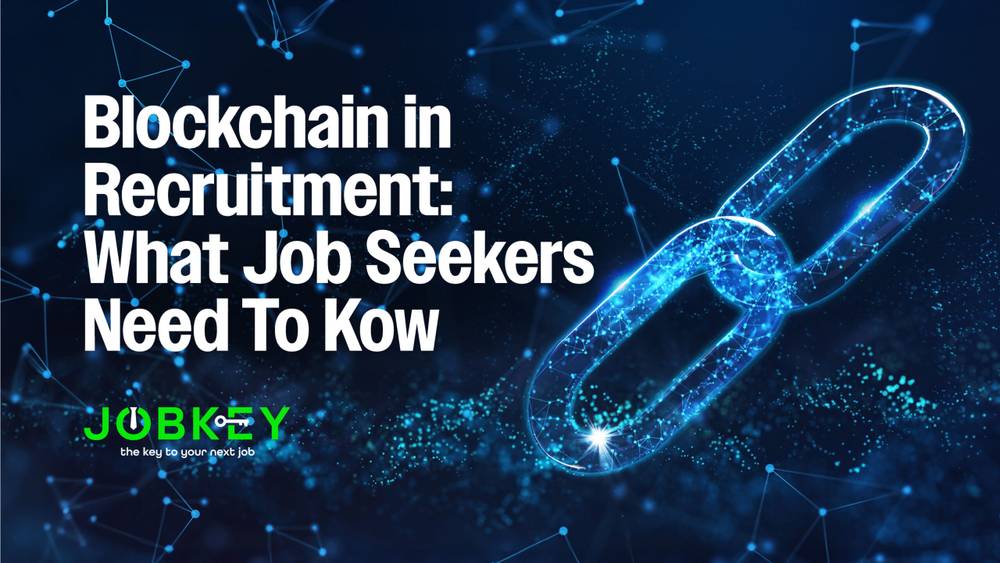
As blockchain technology continues to revolutionize various industries, its impact on recruitment processes is becoming increasingly significant. For job seekers, understanding how blockchain can affect their job search and how to adapt to these changes is crucial. Here’s an exploration of how blockchain is transforming recruitment and what you need to know to stay ahead in the evolving job market.
1. Understanding Blockchain Technology
Before diving into its impact on recruitment, it’s important to grasp the basics of blockchain technology:
- Decentralization: Blockchain is a decentralized digital ledger that records transactions across multiple computers, ensuring transparency and security.
- Immutability: Once information is added to the blockchain, it cannot be altered or deleted, providing a permanent and tamper-proof record.
- Transparency: All transactions on a blockchain are visible to authorized participants, enhancing trust and accountability.
2. Blockchain’s Impact on Recruitment
Blockchain is set to transform various aspects of the recruitment process, making it more efficient, transparent, and secure:
- Credential Verification: Verifying candidates’ educational and professional credentials can be time-consuming. Blockchain enables instant verification of qualifications and work experience, reducing the risk of fraud and streamlining the hiring process.
- Smart Contracts: These self-executing contracts with the terms directly written into code can automate various recruitment tasks, such as offer letters and employment agreements, ensuring compliance and reducing administrative overhead.
- Data Security: Blockchain’s robust security features protect sensitive candidate information from breaches and unauthorized access, enhancing data privacy and trust in the recruitment process.
3. Benefits for Job Seekers
Blockchain technology offers several advantages for job seekers:
- Enhanced Credibility: With credentials stored on the blockchain, your qualifications and achievements can be instantly verified by potential employers, boosting your credibility and reducing delays.
- Streamlined Applications: Smart contracts can automate parts of the application process, such as background checks and employment verification, making it quicker and more efficient.
- Data Ownership: Blockchain empowers you to control your personal data. You can decide who has access to your information and revoke access when necessary, ensuring your privacy.
4. How Job Seekers Can Adapt
To leverage the benefits of blockchain in recruitment, job seekers should consider the following steps:
- Digital Credentials: Start by securing your educational and professional credentials on a blockchain platform. Many universities and certification bodies are beginning to offer blockchain-based credentials.
- Stay Informed: Keep up-to-date with blockchain trends and developments in the recruitment industry. Understanding how blockchain works and its applications can give you a competitive edge.
- Build a Digital Profile: Use blockchain-based platforms to create a comprehensive digital profile that includes verified credentials, work experience, and skills. This can serve as a trustworthy and efficient way for employers to assess your qualifications.
- Network on Blockchain Platforms: Engage with blockchain-based professional networks and job platforms. These platforms are designed to leverage blockchain technology to enhance transparency and trust in the recruitment process.
5. Future Trends in Blockchain Recruitment
As blockchain technology continues to evolve, several trends are likely to shape its future impact on recruitment:
- Decentralized Job Platforms: These platforms use blockchain to connect job seekers and employers directly, reducing the need for intermediaries and enhancing transparency.
- Reputation Systems: Blockchain can enable the creation of immutable reputation systems where your work history, performance, and feedback are securely recorded, providing a reliable measure of your professional reputation.
- Interoperability: Future blockchain systems may enable seamless interoperability between different blockchain networks, making it easier for job seekers to manage and share their credentials across various platforms.
Conclusion
Blockchain technology is poised to significantly impact the recruitment industry, offering greater efficiency, transparency, and security. For job seekers, understanding and adapting to these changes is essential. By leveraging blockchain-based credentials, staying informed about trends, building a robust digital profile, and engaging with blockchain platforms, you can position yourself for success in the evolving job market. Embrace the potential of blockchain, and take proactive steps to enhance your job search and career growth in this new digital era.





